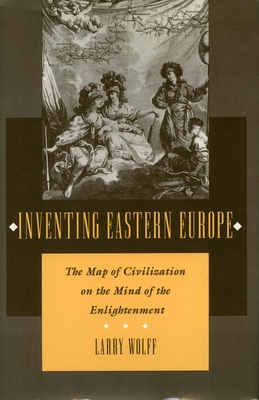 Inventing Eastern Europe: The Map of Civilization on the Mind of the Enlightenment by Larry Wolff, 374 pages
Inventing Eastern Europe: The Map of Civilization on the Mind of the Enlightenment by Larry Wolff, 374 pages
In this survey of 18th century travel literature, Larry Wolff explores how Enlightenment authors charted the domains of civilization and barbarism, making Western Europe the focus of the former and Eastern Europe - or, more evocatively, the European Orient - as the frontier. For the progressive writers of the eighteenth century, the eastern nations were clearly behind the West on the univocal path of human development, and eastern backwardness served the Western intellectual elite not only as reassurance of their own status but as an inspiration to great "civilizing" projects, to be undertaken with or without the agreement of the peoples concerned. This division of the continent, Wolff contended in 1994, underlay but was not effaced by the later Cold War division, and with the Cold War now over, the older division would resurface.
Inventing Eastern Europe is a triumph of postmodern scholarship - obvious and tendentious. With considerable skill and intelligence Wolff conquers the eighteenth century writers who conquered the East, taming them to his narrative. Wolff's case is strengthened by his prescience, as today's enlightened Western elites regard Eastern populists with the same familiar smug revulsion. It also serves as a model for understanding those journalists who have, especially since 2016, embarked upon adventures in Middle America in search of confirmation of their own biases.